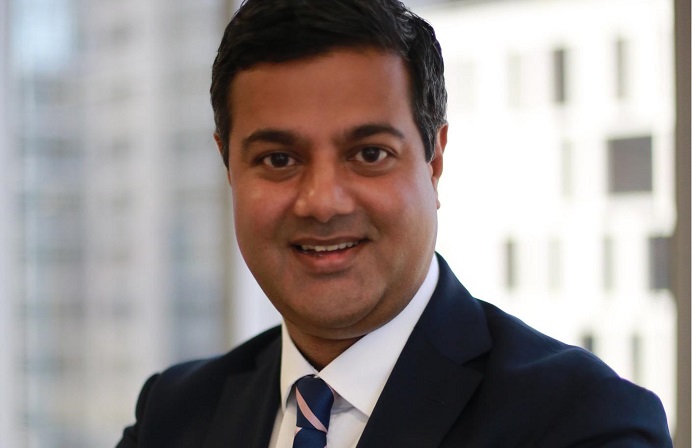
FST Media: What are your priorities within the next 12 to 18 months?
Williams: The BAA has recently appointed a Director of Education, over the next 12 months we will build out a solid set of content that will become the ‘go-to’ point in Australia for people new to Bitcoin, as well as experienced hands.
During the year the BAA has produced a position paper on the taxable treatment of bitcoin in Australia. We have also been involved in the liaison and up-skilling of key government areas as well as talking about some of the technical aspects with other agencies.
We have also been invited to several finance industry seminars and conferences to talk not only about what bitcoin is, but how it may affect key industries.
Over the next 12-18 months we will continue to engage both industry and government alike and offer specialised advice where required.
FST Media: What impact is Bitcoin and crypto-currencies having on the Australian financial industry?
Williams: I have spoken at several financial industry events during the year. There is really genuine interest from industry in general about what bitcoin is and how it works.
Most, if not all, the traditionally conservative players in the market do not have a public position on bitcoin. However, there are several people independently working on bitcoin superannuation projects.
The biggest hurdle to the finance area is the lack of clear regulation. Because there is no clear position from several of the key regulators it makes it difficult from a compliance risk perspective to develop bitcoin projects for consumers.
As time goes on, this will change and even the most conservative players in the market will begin to develop positions in bitcoin.
FST Media: What should banks be doing about the entry of Bitcoin? Are they at risk of being disintermediated?
Williams: Essentially, the first generation of bitcoin services have already been rolled out. We are talking about online wallets, bitcoin payment processors as well as exchanges.
At this stage, at least in the short to medium term, I do not think there is a great risk of disintermediation for the banking sector.
Having said that, as time progresses, with more consumer and merchant adoption there will be a natural migration away from the traditional banking sector into what is essentially banking 2.0.
With the second generation of bitcoin services being developed right now (For example, superannuation, supply chain management, enterprise software) the banking sector really has to sit up and realise this infrastructure is rolling out fast.
Banks should be developing their own in house expertise or strategic acquisition plans.
FST Media: Why is Bitcoin a game-changer?
Williams: For the first time ever, money is not owned or controlled by any single entity. For the first time ever, all you need to participate in a global market is an internet connection. Bitcoin is accessible to anyone, you do not need to join a corporation to participate.
FST Media: How does Bitcoin enhance the user-experience in the payments landscape?
Williams: Bitcoin transactions are really cool with QR code technology online. There is a considerable and significant reduction in friction in making payments, it is just easy.
FST Media: What is the global appetite for Bitcoin?
Williams: There is currently a groundswell of positivity toward bitcoin generally. Governments and regulators have taken notice and have acted within the existing frameworks they have, investors are pouring tens of millions in to bitcoin ventures, and usage and popularity is on the rise.
FST Media: Why should Bitcoin be regulated?
Williams: Regulation is somewhat difficult because bitcoin is quite a few different things, from an asset, to currency to a commodity to a payment network. If we use current regulatory frameworks it is like putting a square peg into a round hole.
Having said that, there are several reasons why bitcoin should be regulated; consumer protection and reputation are high on that list.
While regulation is important, we need to be careful that it is done in such a way as to not stifle innovation.
FST Media: How can Bitcoin and other crypto-currencies work seamlessly with financial services organisations and other disruptors such as Apple and Google?
Williams: Easy, these disruptors need to integrate bitcoin into their payment channels as any other currency. We have seen phenomenal growth in the bitcoin transaction volume growing from an average of 35k transactions per day in 2013 to 60k transactions per day in 2014 (thus far).
It would be in their best interest to pick this up sooner and get that competitive edge.
FST Media: What is your response to calls on the government to regulate Bitcoin?
Williams: The Bitcoin Association of Australia believes that regulation is a positive step for the industry as long as it can be done in a way that does not stifle innovation.
The technology has been invented; the genie is out of the bottle. Crypto currencies are not going away and Australia needs to capitalise on this.
A balanced regulatory landscape here in Australia will breed best of class businesses, bring in overseas investment and position Australia as a world leader in the development and application of crypto currencies.
FST Media: How are you addressing security concerns associated with Bitcoin amidst reports of accounts being hacked?
Williams: Bitcoin has grown up really quickly to where it is now. There have been developments in the supporting infrastructure that have made bitcoin safer and lessons learned on things to avoid.
It is important to remember, that while bitcoin wallets are targets, so is the traditional banking system. As time goes on and things develop, bitcoin will become more resistant to hacking.
The Bitcoin Association of Australia endorses best practice with regard to bitcoin security.
FST Media: Do you believe we are headed toward a cashless society?
Williams: If you mean, will we eliminate 100 per cent of all cash transactions, no, I do not think we will achieve that. There will always be a place for cash, it might become niche, but there will always be a place.
FST Media: Why has there been so much resistance to Bitcoin?
Williams: I think there are some main reasons:
* People do not understand the technology. People often mention to me the Bitcoin CEO has resigned, or Bitcoin is bankrupt, or Bitcoin is a Ponzi scheme.
* Despite amazing growth over the past few years, when you compare bitcoin to traditional retail figures, it is still just a drop in the ocean. “Why bother?” is the question I am often asked. With the growth figures above and continued investment into infrastructure, bitcoin will evolve to a point where resistance will fade away.
FST Media: Where does the potential end for Bitcoin to be integrated in financial services? Will there ever be a market for a Bitcoin bank, for example?
Williams: Yes, in some respects there is already what you might call the beginnings of bitcoin banks with the online wallet providers. That is a pretty close analog to a traditional banking account.
As the ecosystem develops, other financial products will be built out essentially becoming banking 2.0. What you can do with traditional currency, you can do with Bitcoin (only better and faster).
FST Media: What is one technology you could not live without, and why has it become a necessity?
Williams: The bit of technology I could not live without would have to be my smart phone. I am in constant contact using email, SMS and other chat services. I have a (encrypted and backed up) bitcoin wallet that I can use to pay for things, my alarm clock, my mp3 player, online video and music streaming to my house, and a vpn. It is really probably the most useful tool I have in my belt.
FST Media: Every leader has a legacy they wish to be remembered for, what is yours?
Williams: Bitcoin represents a game changer in financial payments. For the first time ever, anyone with an internet connection can send and receive money.
You do not need a traditional business to hold your money, you do not have to pay fees, and transactions are secure and instant.
If I were to leave a legacy, it would be for the work I do with the Australian and Sydney communities, as well as with my startup, to positively influence and help shape bitcoin to the betterment of peoples’ lives.





